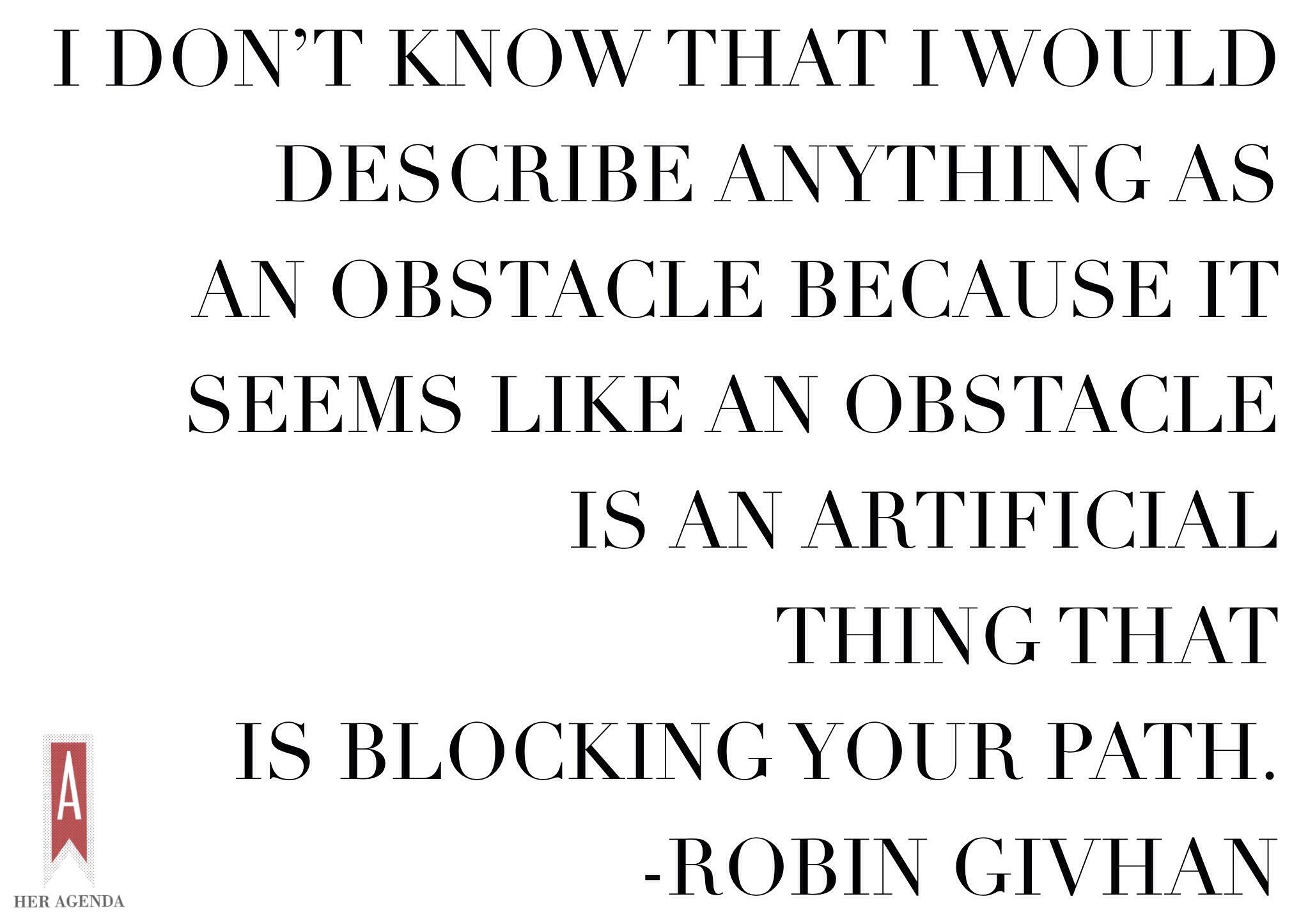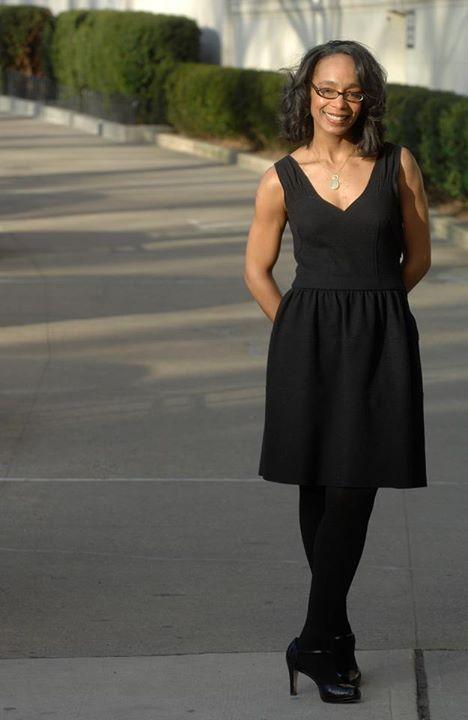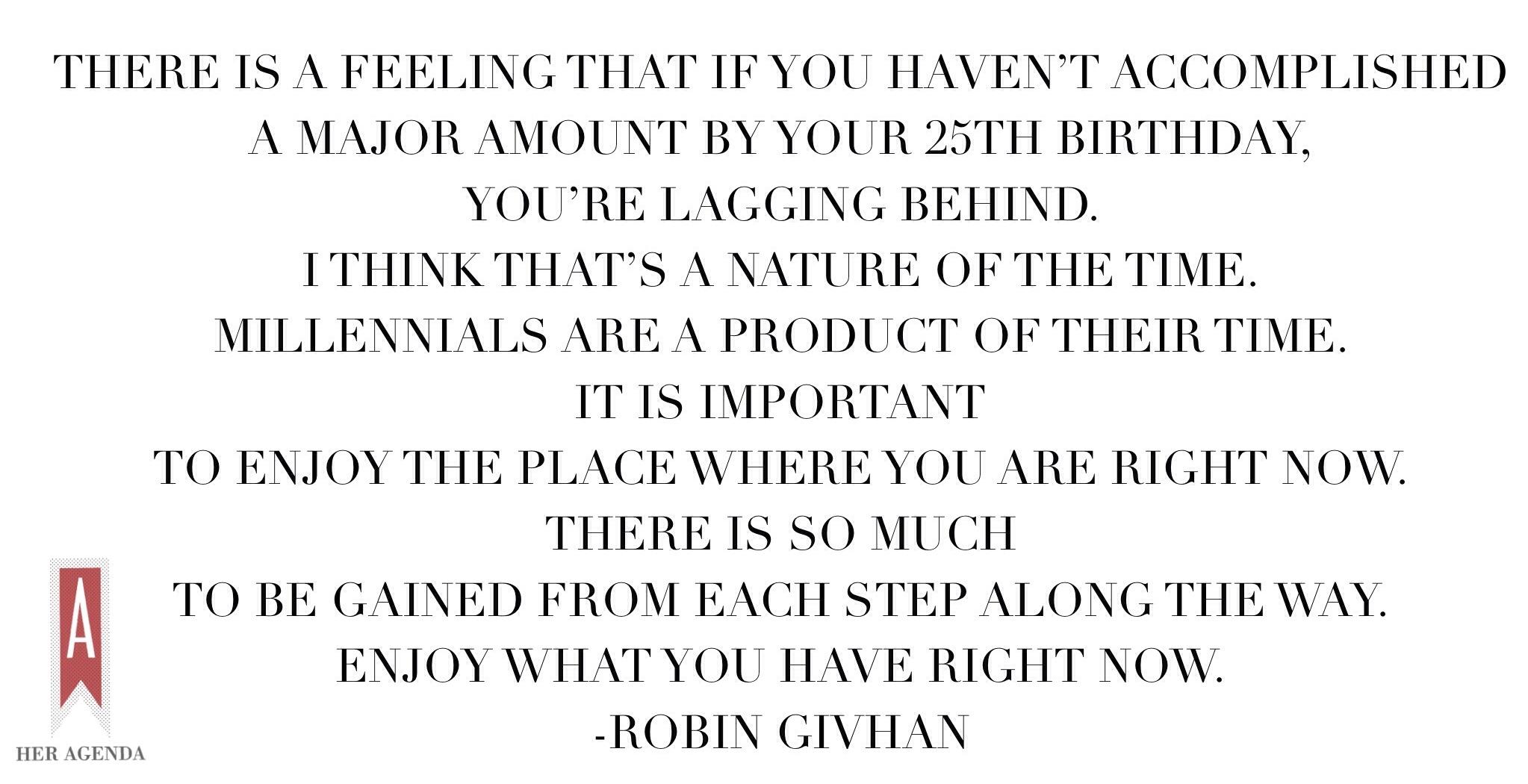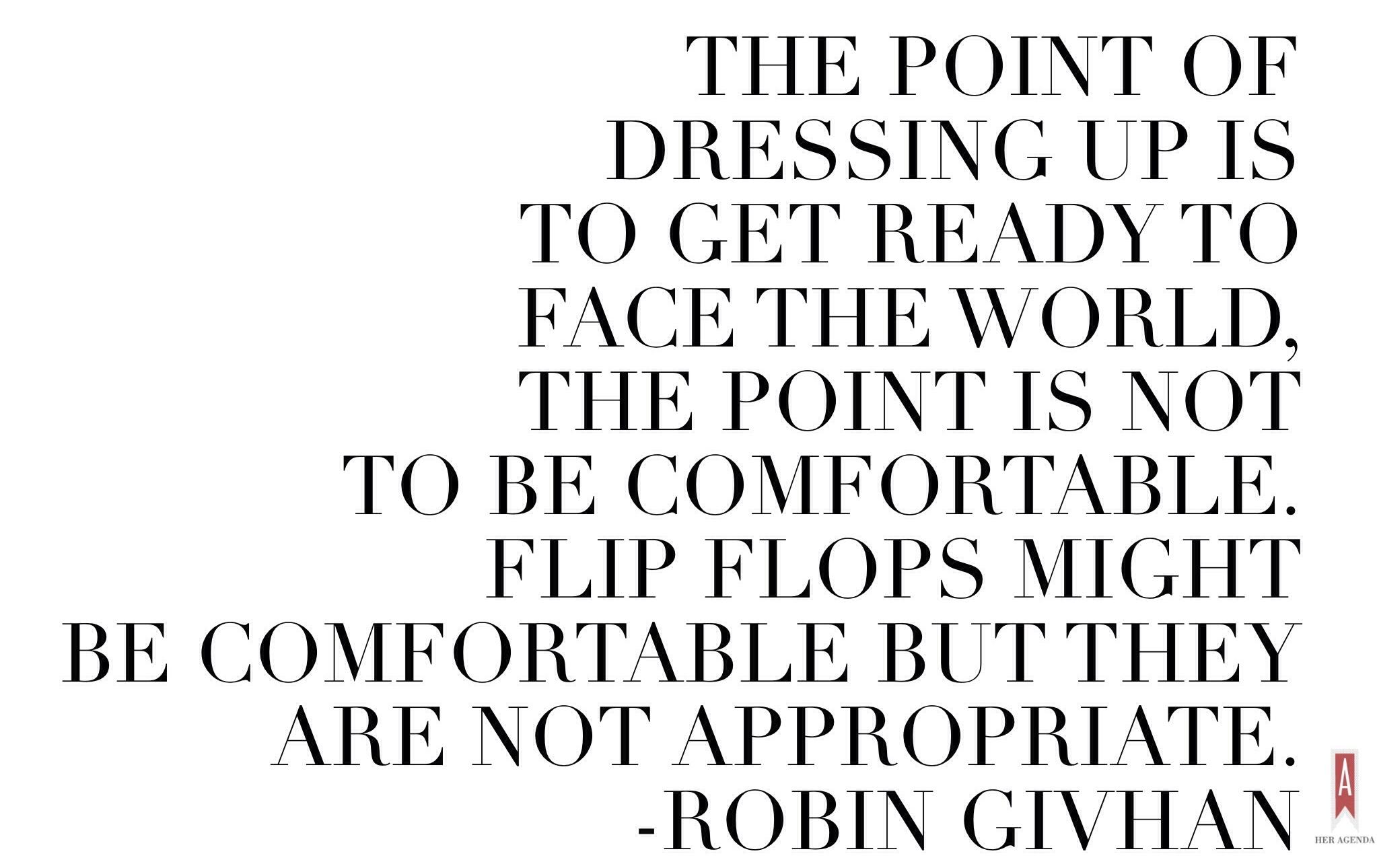From The Washington Post to the Daily Beast,Newsweek, and now back at the Post, Robin Givhan has shared her criticism–the good, bad and ugly–about not just fashion but how it plays a role in our lives. Her journalistic flair for documenting and analyzing dresses, suits, runways and pop culture goes beyond the mundane fashion reporting and earned her much praise, culminating in a Pulitzer Prize for Criticism in 2006. In addition to her Pulitzer, Givhan was inducted into the University of Michigan’s Detroit Hall of Fame in 2013. She certainly is not one to rest on her laurels and is set to publish a book, One Night at Versailles, about the Battle of Versailles Fashion Show. Read on to learn why Robin Givhan does not believe in obstacles and how each day is a new opportunity to do (and look) your best.
Her Agenda: What’s your motto?
Robin Givhan: The best piece of advice that I’ve ever been given came from my mother: ‘You cannot change the actions of people, you can only change how you respond to them.’
Her Agenda: Give us a snapshot of your career in 90 seconds.
Robin Givhan: Essentially, I’ve been able to do what I love, which is to write. I love the process of writing. In many ways, I feel very fortunate. I’ve never had one of those jobs that was drudgery. I had part-time jobs in college and they were fine but there was no personal investment. I’ve been able to do what feels natural.
Her Agenda: Can you elaborate on some obstacles or challenges that you’ve experienced?
Robin Givhan: I don’t know that I would describe anything as an obstacle because it seems like an obstacle is an artificial thing that is blocking your path. There have been points along the way, where I have had to cover the weird, review the horrible movie and other things like that. To me, it was not a hurdle, that was always part of the learning process. It was dues paying to get a sense of context for the industry. If you know ultimately you want to be a sports writer or television producer, all of those things prepare you for your ultimate goal and to do that job well. When I look back and think about publications that I worked for, I was the low person on the totem pole or the intern, and then would hand over the story to the more experienced reporter; to me that wasn’t a hurdle it was a learning experience.

Her Agenda: Would you recommend college graduates to use everything as a learning process?
Robin Givhan: Because everything is so much faster now, it does feel like with social media people can go from obscurity to 100,000 followers in a week. There is a feeling that if you haven’t accomplished a major amount by your 25th birthday, you’re lagging behind. I think that’s a nature of the time. Millennials are a product of their time. It is important to enjoy the place where you are right now. There is so much to be gained from each step along the way. Enjoy what you have right now.


Her Agenda: What was your life before and after winning the Pulitzer Prize? (The Pulitzer Prize is an award achievements in newspaper and online journalism, literature, and musical composition in the United States.)
Robin Givhan: When I found out I won, one of my colleagues at the Post, who had also won [a Pulitzer], gave me this piece of advice. Savor this moment. Don’t allow it to wash over you but to notice everything and to enjoy it. I took that to heart. It was a really wonderful period of celebration. One of the nice things was at other newspapers, my colleagues were so enthusiastic. The win was a win for them as well. The Pulitzer raised the stature for our work.
There was not a difference in how I covered the industry. There were definitely more opportunities that opened up. The joke is that [winning the Pulitzer Prize] is going to be the opening line of your obit[uary]. It’s one of the awards that goes beyond the industry that the general public is aware of. I never tire of hearing congratulations.
Her Agenda: You recently wrote about Project Runaway and how it has made fashion more accessible and democratic. Do you feel the same way about new technologies and communication (i.e., mobile phones, social media, etc.)?
Robin Givhan: Social media has allowed people to have greater interaction with fashion. I don’t know that it’s allowed them to have an insider’s view. Quite often, for design houses or designer themselves, social media is a marketing tool. To that end, there is still a certain facade. There is still a mystique to uphold. There is oftentimes a faux transparency. I do feel it makes people more engaged with it.
Her Agenda: What were your initial reactions of the passing of de la Renta, his career, his approach to the American fashion landscape?
Robin Givhan: I had been thinking a lot about him because I just finished this book and he was one of the designers I interviewed about the Battle of Versailles. One of the things that spoke volumes about him was when I arrived for an interview, he apologized to me for having taken off his tie. There was a certain propriety and decorum. From a journalistic point of view, he spoke his mind. He was by no means stiff. He was dishy and fun and an entertaining interview. His fashion had a certain decorum and it had a kind of dignity and it was fun. It was a pleasure to look at it and wear it. His work was in service to his client and not about showing off.
Her Agenda: What were your initial reactions of former Washington Post editor, Ben Bradlee’s passing. What kind of relationship did you have, if any?
Robin Givhan: When I arrived at the Post, he had already retired but he was still Vice President at large. I did not have a relationship but someone did introduce me to him during my first month. You look at him and say, “Wow. Legend.” I think there are so few journalistic heroes, in the sense of carrying a standard in the face of great difficulty. I hesitate to use the word “hero” because it’s overused but he was a man above men and that is inspiring.

Her Agenda: What style or career advice can you offer a millennial who is starting off or is looking to change careers?
Robin Givhan: Whatever your style is, I think you should be psychologically comfortable in it but don’t think necessarily that you need be physically comfortable. If you want it to be super comfortable, just wear your pajamas to the office. The point of dressing up is to get ready to face the world, the point is not to be comfortable. Flip flops might be comfortable but they are not appropriate. I think inherently, people know these things but they ignore the voice inside their head and instead rely on “it’s comfortable.” There is always that conversation that an outfit can take you from the office to an evening night out, no it can’t. Those are two separate worlds. To get back to Oscar (de la Renta), part of his sensibility included this belief that, when you go out into the world, you are part of the landscape and you should do your best to improve the look of the landscape. Not that anyone achieves that everyday, I think that’s a nice standard. None of that implies you have to be stuffy, really formal, or walking in four-inch heels or in a suit and tie. It means do your best and improve the look of your landscape.
[Editor’s note: This feature was published on November 10, 2014]








